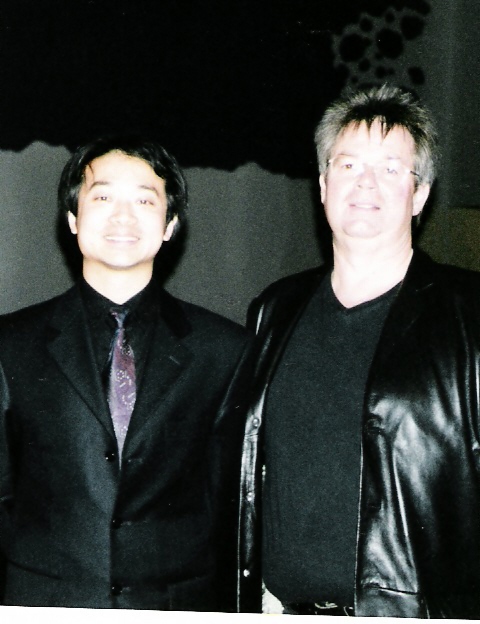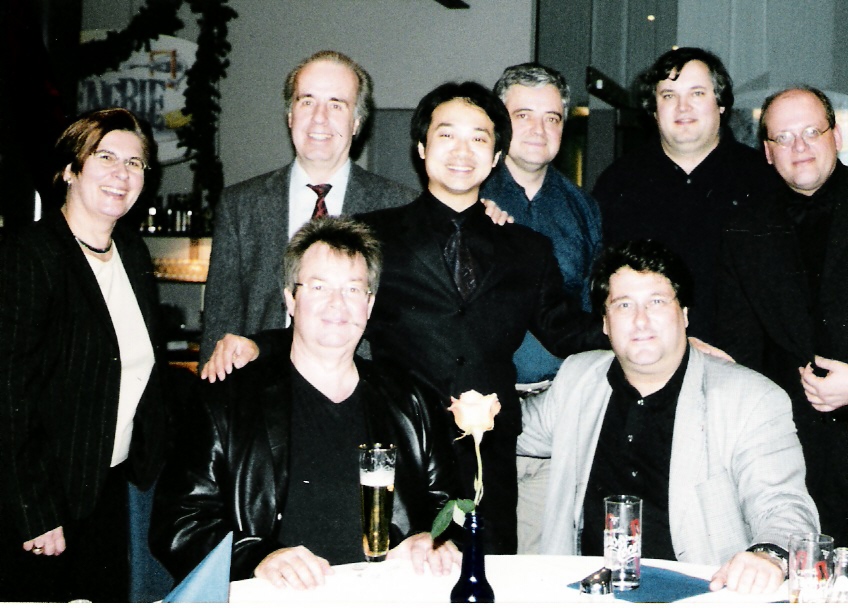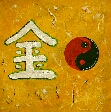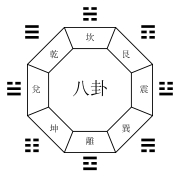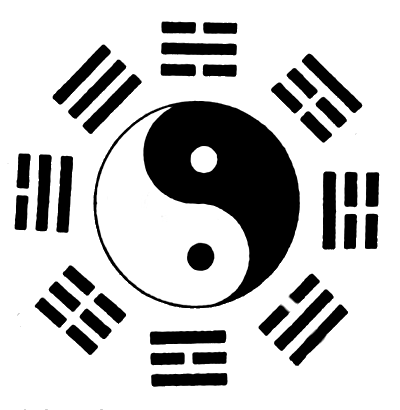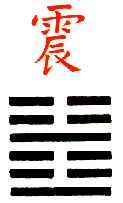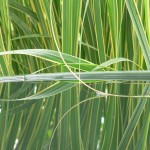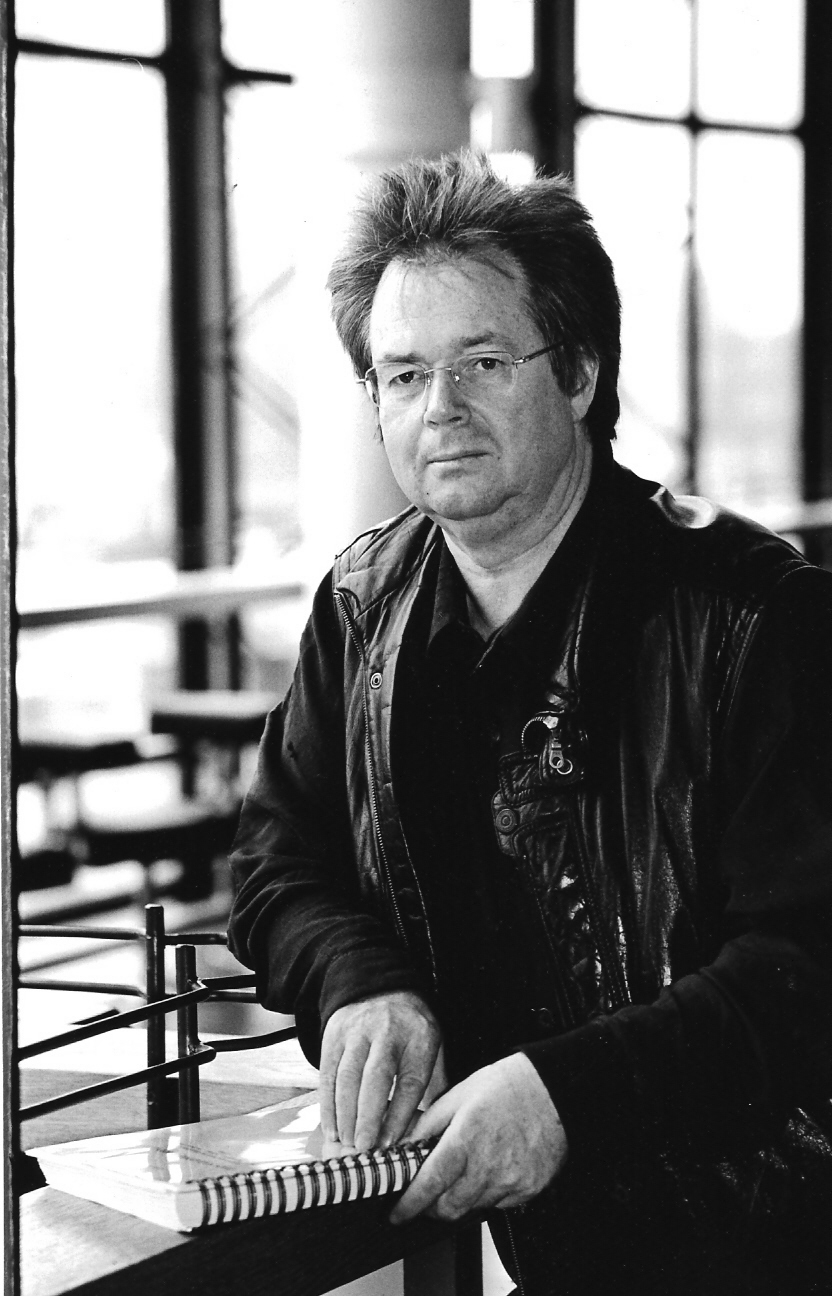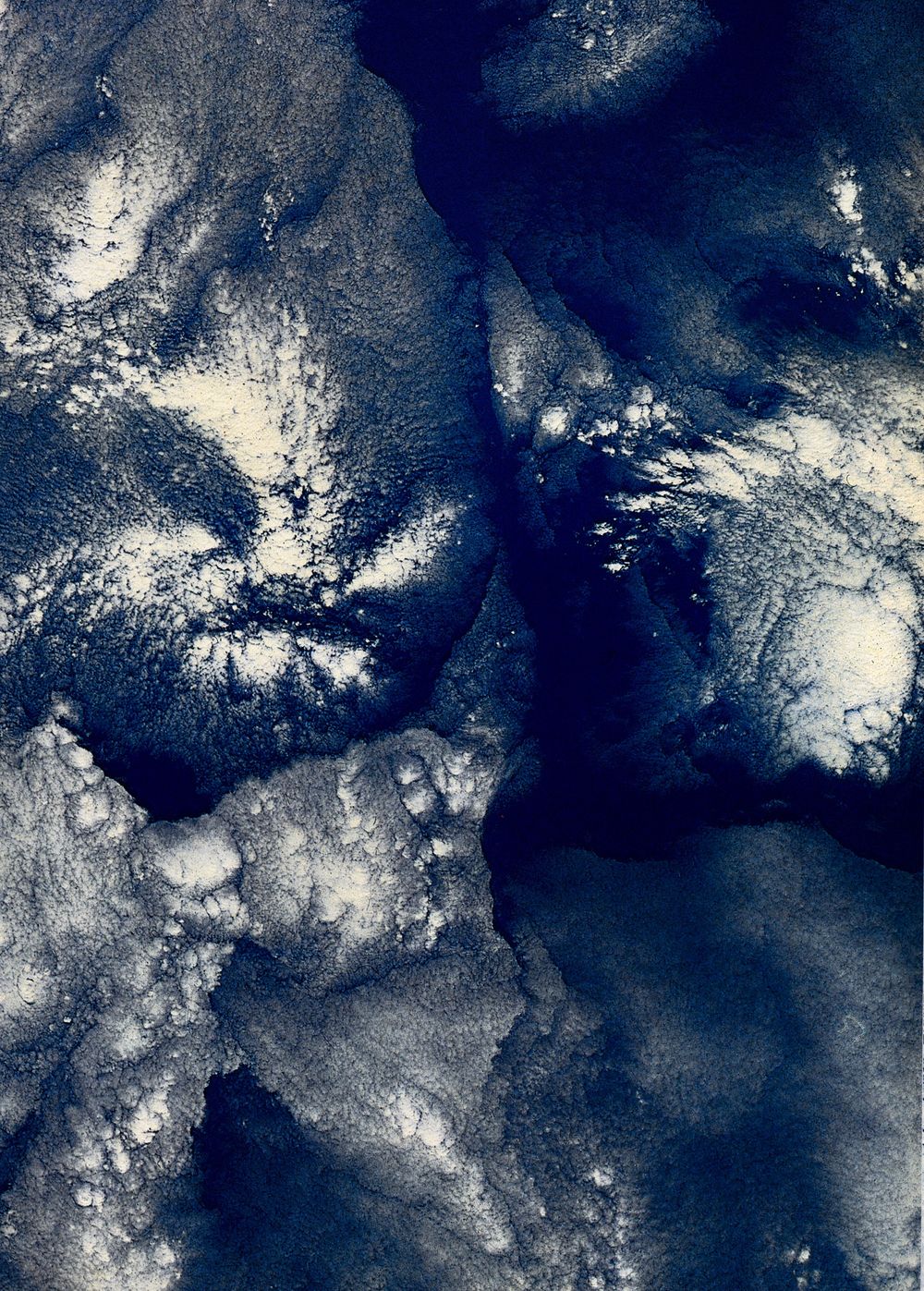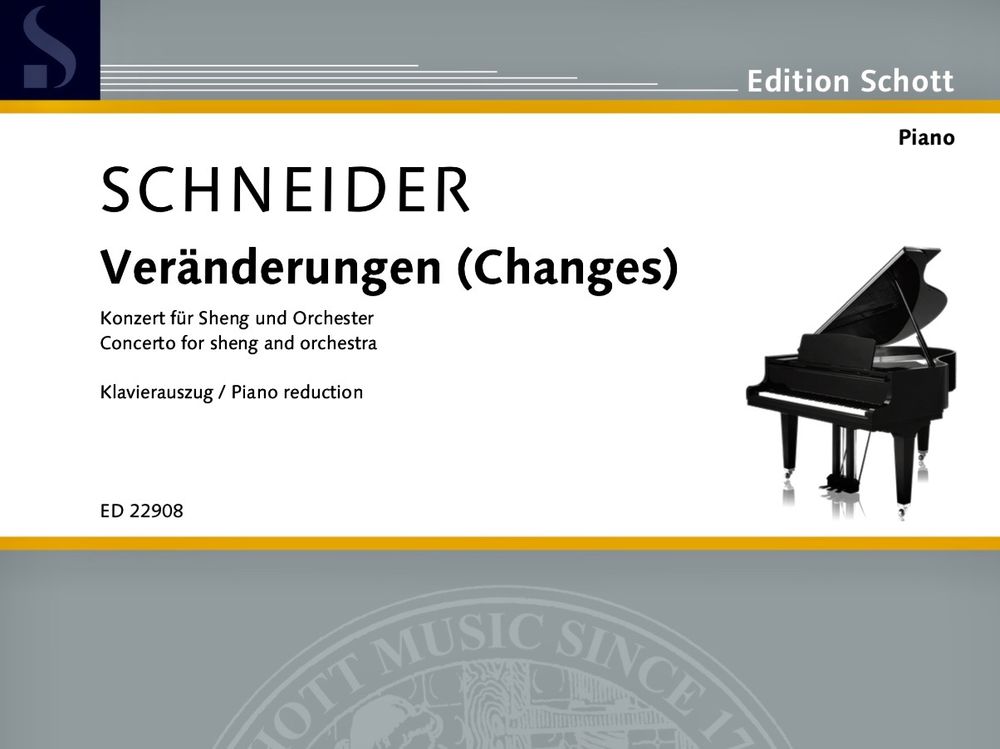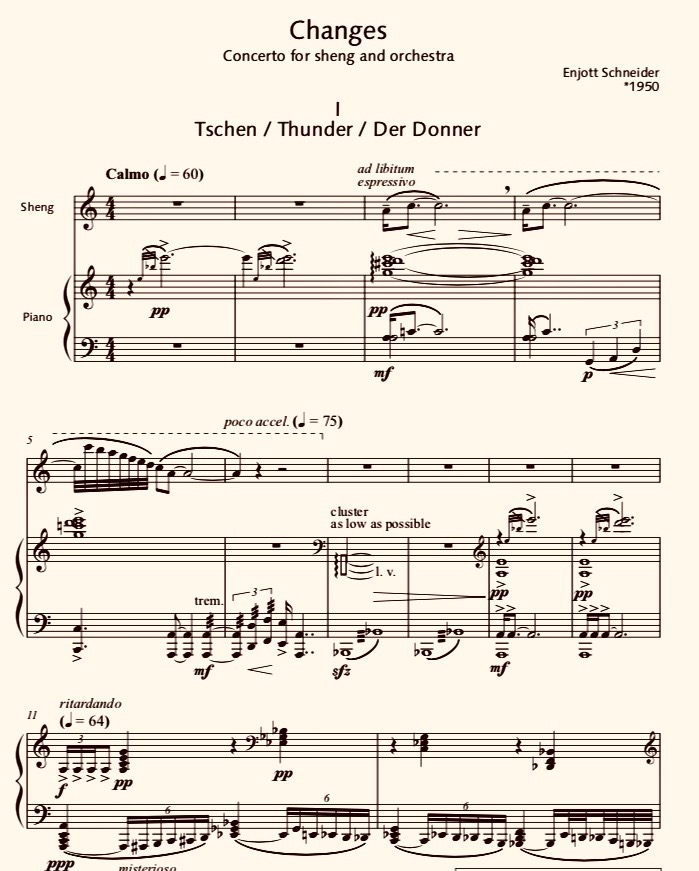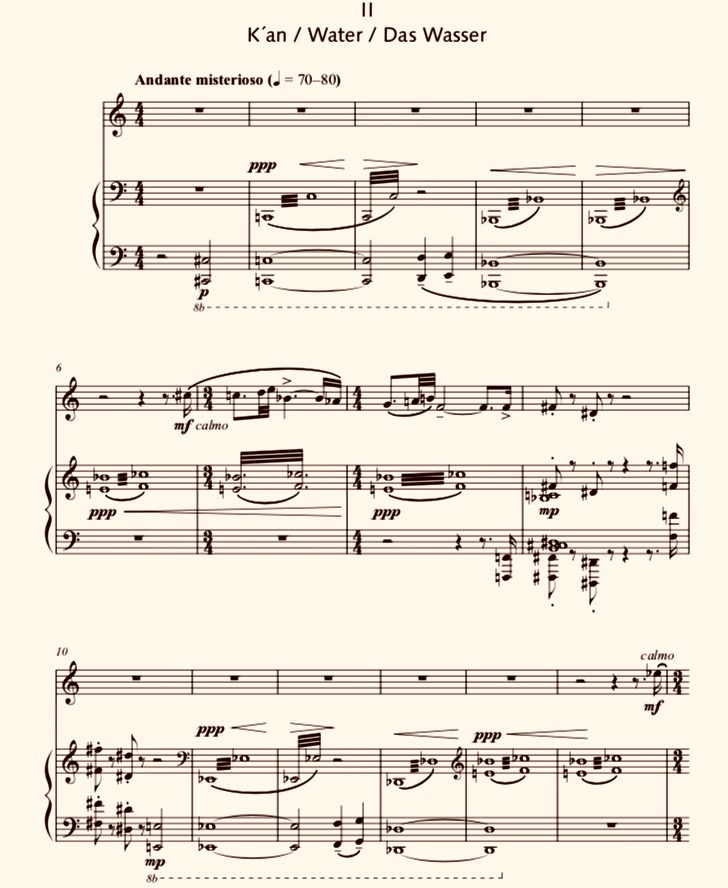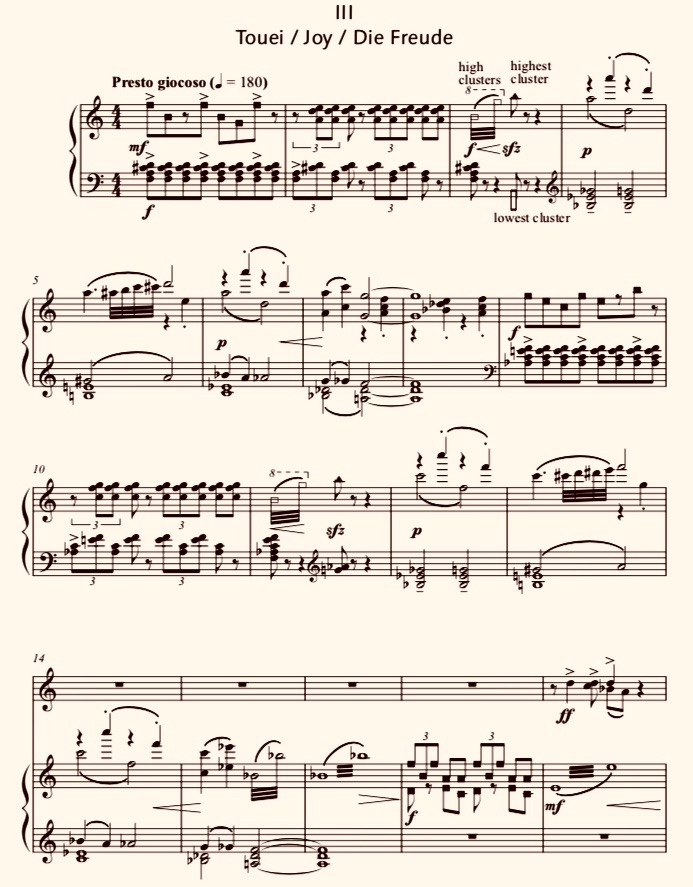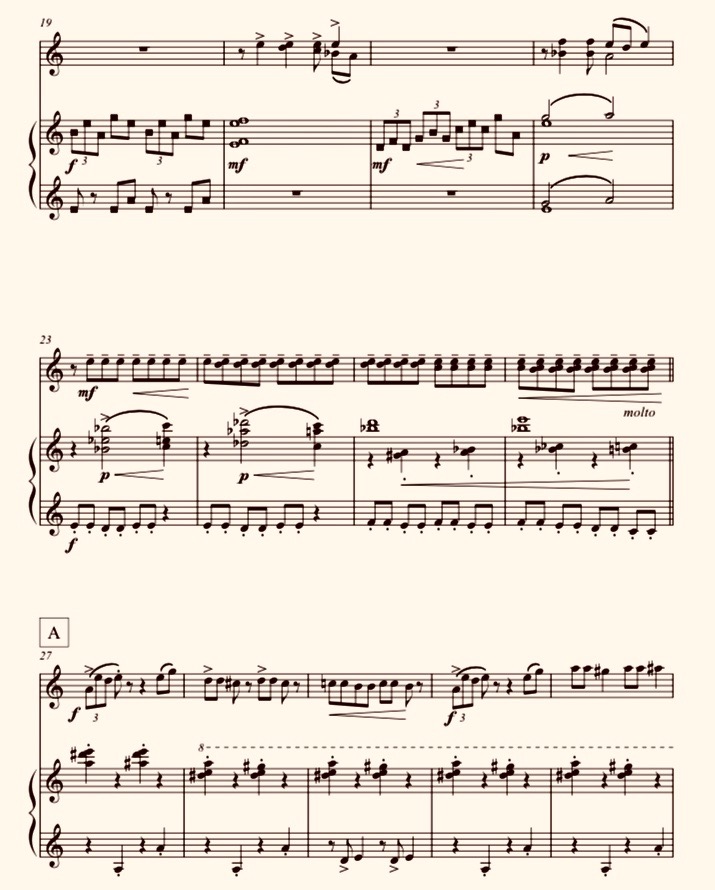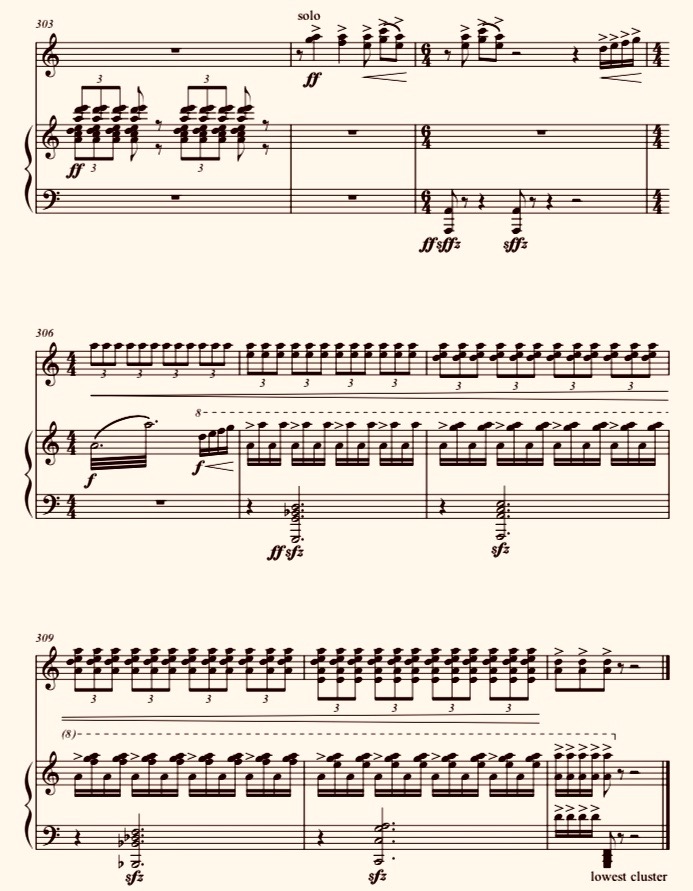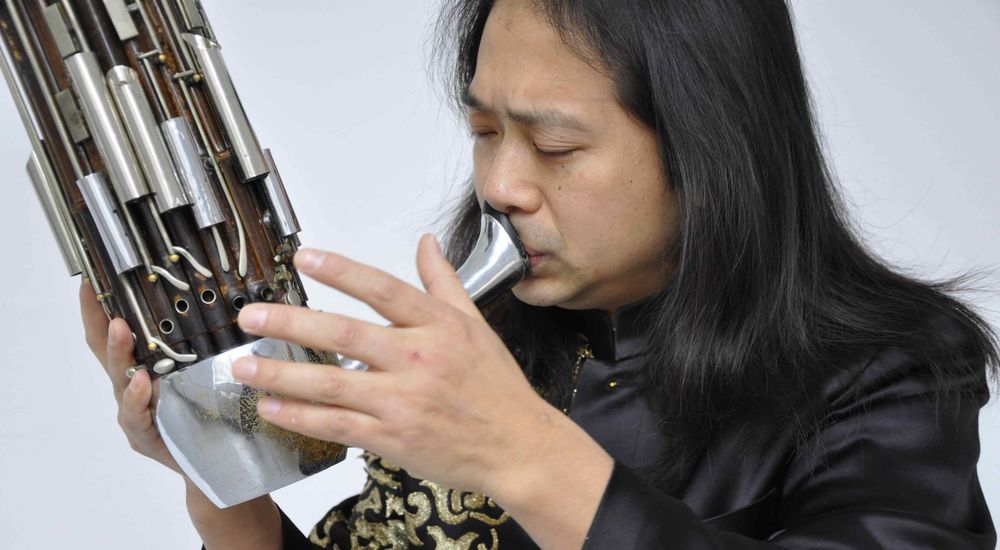
Category: Symphonic / Orchestral , Recordings
A concert which is very often performed...mostly by Soloist WuWei. Orchestra published by Schott Music (on hire) and a piano score ED 22098 with Solopart as sheeth music to buy.
In the 5000-year-old Chinese "Book of Changes” (in the pinyin transcription called "I Ching" or more recently "Yi Jing"), the world is recognised in permanent change and transformation. The black and white polarity of Yin & Yang is also a symbol of this: only in the opposition of the forces does existence stabilise - light and shadow, the positive and the negative, male-female.
The three movements of the Concerto for Sheng and Orchestra correspond to some of the famous trigrams as basic energetic patterns.
CHANGES deals with the spiritual transposition of the dual growth processes: everything remains connected in its opposites; behind the proliferating diversity, which seems to be joined together uncontrollably as if by chance, the lawfulness of a permanent change of forces shimmers through.
Movements: 1: 'Tschen (thethunder)'
2: 'Kan (the water)'
3: 'Touei (the sea)'
Duration: 35:00 (14:00 / 09:00 / 12:00)
Publisher of notes/sheet music: Schott Musik International , Available for rent , 2001
Instrumentation: Picc. 2 Fl. 2 Ob., Cor a. 2 clar. (B) bass clar. 3 bas. 4 Hr. 3 Trp. (B) 2 Tros. bass tro. bass tuba kettledrum 2 percuss. harp. strings (16-14-12-10-8) and sheng (mouth organ)
Text/Lyrics by: Dedicated to the soloist Wu Wei
Introduction: In the 5000-year-old Chinese "Book of Changes” (in the pinyin transcription called "I Ching" or more recently "Yi Jing"), the world is recognised in permanent change and transformation. The black and white polarity of Yin & Yang is also a symbol of this: only in the opposition of the forces does existence stabilise - light and shadow, the positive and the negative, male-female.
The three movements of the Concerto for Sheng and Orchestra correspond to some of the famous trigrams as basic energetic patterns: TSCHEN is the awakener, the thunder, to which the qualities of the provocative, the violent, the impetuous growth are assigned. K'AN as depth and abyss has water as its image, to which the moon and everything mysterious, difficult to understand and melancholic corresponds (consequently, this movement is based on a 12-tone series and a shifted mirror-symmetrical rhythm). TOUEI is the pleasure, the happiness, the serene calm, to which the image of the lake corresponds.
The "CHANGES" remain in the sound material rather in the conventions of western music. The bridge to Chinese music succeeds above all through the use of the sheng (one of the oldest musical instruments) and the spiritual transposition of the dual growth processes: everything remains connected in its opposites; behind the proliferating diversity, which seems to be joined together uncontrollably as if by chance, the lawfulness of a permanent change of forces shimmers through.
World premiere: 03.09.2003, Ruhrfestspielhaus Recklinghausen, (= 5th Symphony concert 2002/3), additional performances on the 10th,11th,12th of March at the 'Musiktheater Gelsenkirchen' and Concert auditorium Kamen
Performers at world premiere: Wu Wei (Sheng) / Westfalen New Philharmonic Orchestra, direction: general music director Samuel Bächli
Press reviews for world premiere: WAZ West German Newspaper / Gelsenkirchen (12.3.2003): This was the surprise in the symphinic annual cycle: In the 5th concert of the new philharmonic concert hall a premiere of Enjott Schneider - 'Changes' for Sheng and orchestra. The soloist was the highly virtuoso Chinese Wu Wei. Asian music hits with European tradition. This is the starting point Schneider. His opera 'The Salome Principle' became a hit - in the past season and the piece which he wrote for the artist living in Berlin.... Schneider demonstrates this with high sensitivity because he does not imitate Far Eastern pentatonics or symphonically done up folklore. He writes a European sound work in which he accommodates even a 12-sound row. Everybody hears it, nobody notices it.... Behind these premieres the remaining works, everybody of the big occupation dedicated, in the second limb moved.
Records: CD series of the 'Musikhochschle München' Volume 45, 2006
Performers on recording: WuWei/Sheng and the Munich 'Symphoniker', cond.: Heiko Matthias Förster, Live recording from the Herkules-Saal in Munich
